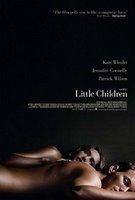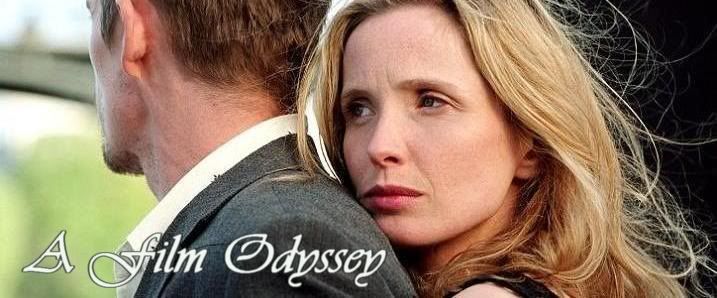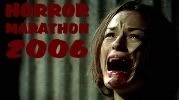Little Children (2006)
 Emotionally and mentally displaced by her surroundings, Kate Winslet’s Sarah Pierce imagines herself as an anthropologist on something of a field study, the subjects in question being the caricature-driven housewives whom she is forced to spend time with while taking her daughter to the local playground. She being anything but a typical suburban woman, this attitude allows her to maintain her composure around these exaggerated philistines. So too does Little Children feel like a scientists’ sterile examination of our collective suburban experience, and it’s certainly not at a lack for potentially challenging or probing material. Unfortunately, the many characters, relationships and by-chance encounters – while not milked so gratuitously for “meaning” as a certain Paul Haggis film – are presented not like real human beings but like the isolated subjects of an experiment, callously manipulated by a filmmaker with an obvious agenda, which is unceremoniously spoon-fed to the audience with all the subtlety of a sledgehammer.
Emotionally and mentally displaced by her surroundings, Kate Winslet’s Sarah Pierce imagines herself as an anthropologist on something of a field study, the subjects in question being the caricature-driven housewives whom she is forced to spend time with while taking her daughter to the local playground. She being anything but a typical suburban woman, this attitude allows her to maintain her composure around these exaggerated philistines. So too does Little Children feel like a scientists’ sterile examination of our collective suburban experience, and it’s certainly not at a lack for potentially challenging or probing material. Unfortunately, the many characters, relationships and by-chance encounters – while not milked so gratuitously for “meaning” as a certain Paul Haggis film – are presented not like real human beings but like the isolated subjects of an experiment, callously manipulated by a filmmaker with an obvious agenda, which is unceremoniously spoon-fed to the audience with all the subtlety of a sledgehammer.The story concerns two emotionally estranged stay-at-home parents who find solace in each other’s company. Winslet’s Sarah and Patrick Wilson’s Brad Adamson, whose meet-cute encounter at first leads only to friendly co-parenting at the local pool amidst the summer heat, eventually escalate their relationship into a regular meet-and-fuck. A backdrop to these behind-closed-doors dysfunctions is a convicted pedophile, just released from his two-year sentence for indecent exposure to a volatile and fearful community. An external narrator regularly elucidates these characters’ thoughts and feelings, seemingly because Fields deemed it fit that a film about emotional infants need be presented as if it were a children’s book. It is this approach (paired with the geometrical, lifeless mise-en-scène) that drains the material of any real life force, its aesthetic not only unaccommodating for real human feelings (the characters being but stereotypes the movie limply pokes at), but ultimately so serious and polished as to prove downright laughable. One is reminded of an early sequence mocking the uptight, regimented planning and scheduling of said aforementioned suburban woman, an attribute Fields mistakenly imitates in his attempts at deconstruction. Little Children’s hypocrisy is evident in that it replicates that which it otherwise attempts to expose.





